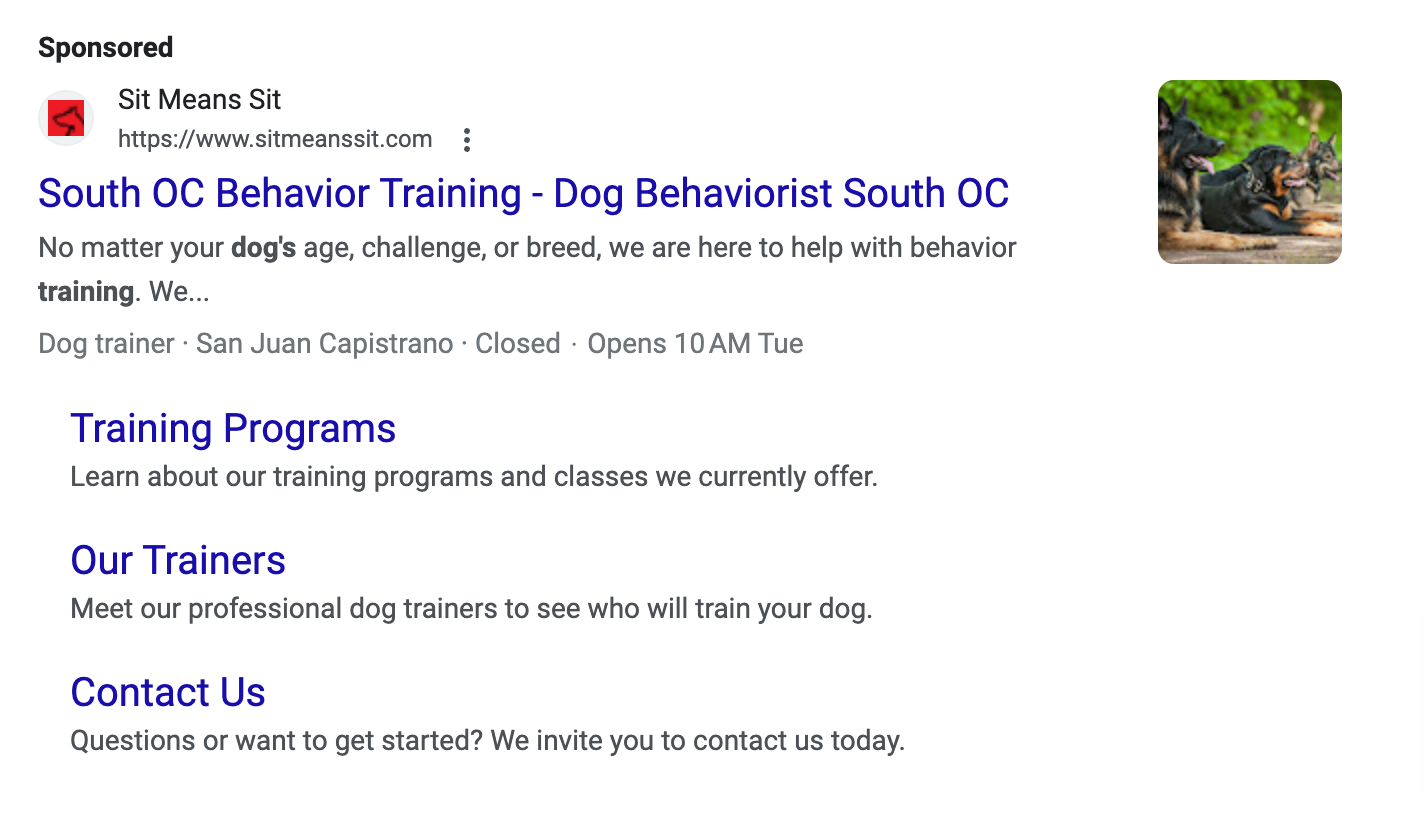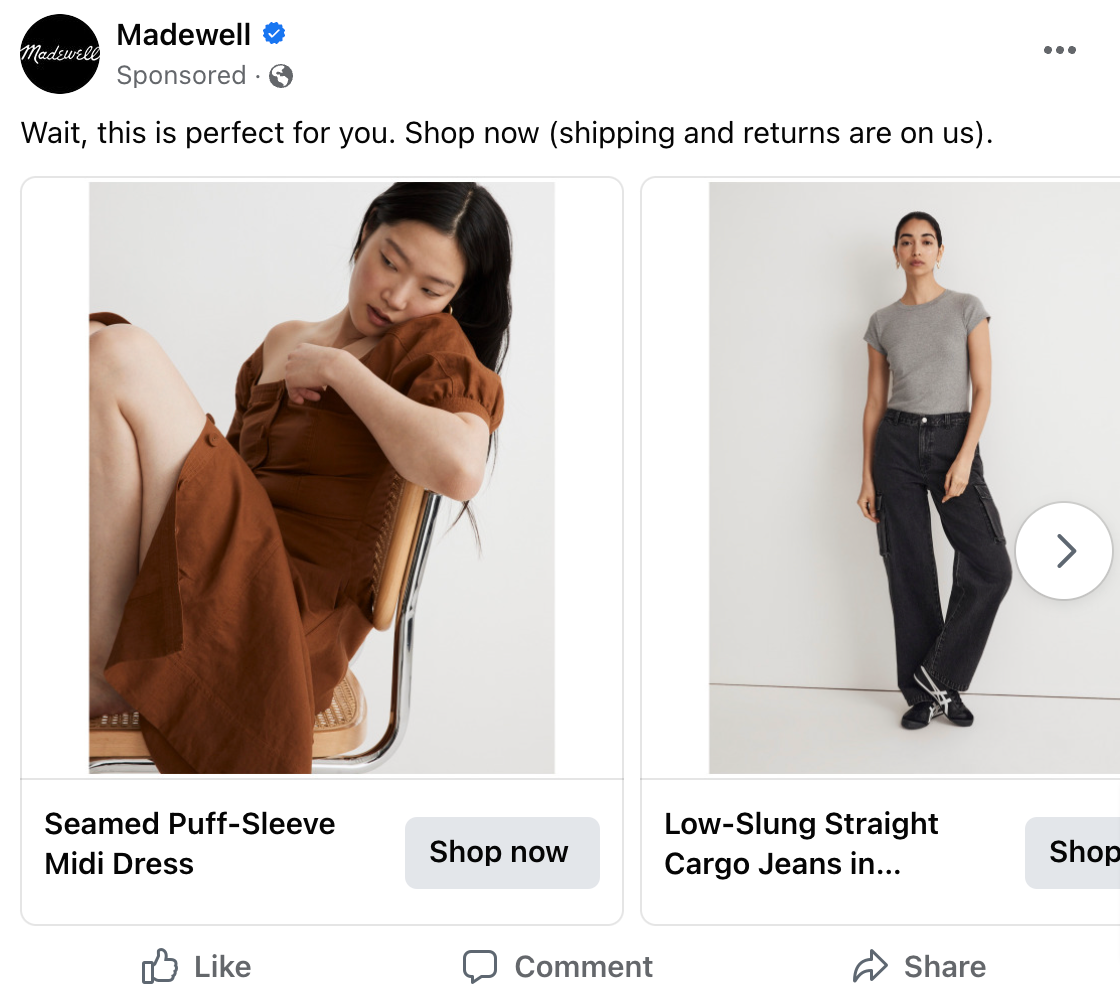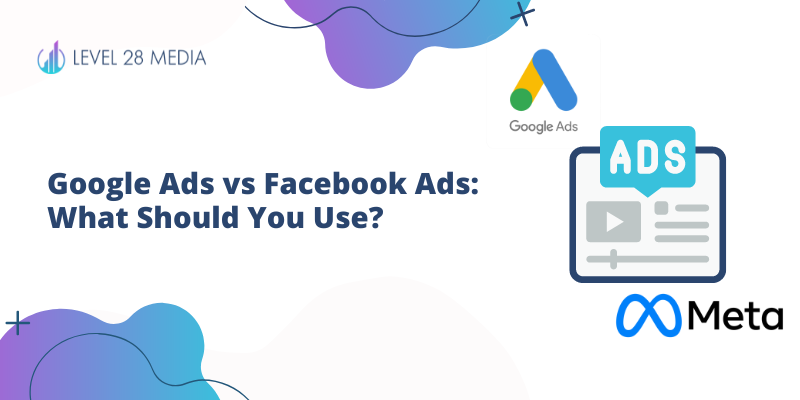In the ever-evolving landscape of digital advertising, the question of where to invest your marketing budget is a pivotal one. The debate about using Google Ads vs Facebook ads is incredibly common among small business owners.
In this article, we will dissect the strengths and weaknesses of Google Ads and Facebook Ads and which is best for your business.
How Does Google Ads Paid Search Work?
The Google Ads platform is centered around bidding on keywords frequently used by Google users, aiming to position ads prominently in search engine results.

As an advertiser, you will bid on these keywords via Google’s auction system. This auction takes into account various factors, including the bid value, the quality, and the relevance of the ad to the user’s search.
It’s a pay-per-click (PPC) model, so you will only pay every time someone clicks on your ad. The cost per click varies since it will depend on the level of competition for particular keywords and ad quality.
With billions of Google searches performed daily, this platform offers a massive audience reach. For example, individuals might search for “nail salon near me” to find a local nail shop or seek specific expertise like “bankruptcy attorney in Orange County.” It’s a great way to put your business in front of customers who need your services ASAP!
How Do Facebook Ads Work?
Facebook Advertising (now known as Meta Ads) is one of the biggest paid social platforms on the planet. Through their platform, you can reach users not only on Facebook itself but also seamlessly on Instagram.

As an advertiser, you can target potential customers based on demographics (age, gender, location), interests, behaviors, and connections. Unlike other advertising methods, Facebook does not have keyword targeting options.
Ads can be shown on the Facebook newsfeed, Instagram feed, stories, and the audience network which includes third-party apps and websites. These placement options enable you to tailor your approach to the preferences and behaviors of your target audience, maximizing visibility and engagement.
Google Ads vs Facebook Ads: Pros and Cons
Pro: Great Channel for Top of Funnel Strategies and Brand Awareness
Since Facebook has great targeting options based on interests, you can put your product in front of the right audiences. It’s a great way for users to discover your brand and push them to the top of the funnel. Remember, Facebook Ads gives you access to advertise on Instagram feeds, and you can be found by tons of users casually scrolling through their feeds.
Pro: Plenty of Remarketing Opportunities
Remarketing is all about targeting customers who have previously visited your website. It’s a great way to increase brand awareness, and using Facebook ads is one of the most effective ways to do remarketing. You’ll be able to hit users on both Facebook and Instagram which can push them towards a purchase.
Con: Users Are Not Typically Ready to Make a Purchase
With Facebook Ads, we’ve talked a lot about how it’s a great strategy for brand awareness. Since it’s a platform that allows users to discover new brands and companies, users will be less likely to convert than if you were to target specific keywords on Google Ads. The traffic from Facebook tends to be a lot “colder” than traffic from Google. Facebook users are typically passively scrolling through their social feeds rather than actively searching for new products.
Con: High Ad Fatigue
Due to the high frequency of ad exposure on Facebook, users may experience ad fatigue. People are constantly on social media, endlessly scrolling through their feeds. Due to this, Facebook ad effectiveness can reduce over time.
Google Search Ads
Pros: Higher Chance of Conversion
Since you can target specific keywords, you can set your campaign up for a higher chance of conversion. This is especially true if you are targeting high-intent keywords like orthodontist near me or residential roofing contractor near me. Small businesses that have a tighter budget can put their efforts into these keywords to get the best results.
Pro: Get to the Top of Search Results Faster Than SEO
Google Ads takes a close look at your ad relevance in addition to how much you are bidding. With a well-structured campaign and proper bidding strategy, you are able to fight for that top spot on Google. With SEO, it can take at least 6 months to a year to get to the top of search results on Google–sometimes, you may never even get on the first page!
Pro: Ability to Precisely Measure Your ROI
By implementing conversion tracking, you can track specific actions that users take after clicking on their ads, such as completing a purchase or submitting a consultation request. This data-driven approach enables advertisers to attribute conversions directly to their Google Ads campaigns, providing clear insights into which keywords, ads, and strategies are driving the most valuable outcomes.
Pro: Great Ad Formats for Local Business
If you are a small business owner, Google Search Ads gives you access to advertise on Google Business listings and Maps. Why is this great? It gives you more opportunities to get eyeballs on your ads in places that people use to find a business near them. So many users are conducting searches on these apps in addition to the main search engine!
Con: Higher Upfront Investment
To perform well on Google Search, you need a sizable budget. Many small business owners make the mistake of starting out with a budget under $1,000. You need to have a sizable budget to get your campaign running quickly and collecting data. If you have a high cost per click, a small budget will not get you anywhere. Your campaign might run out of money in the first few days!
Con: Campaign Setup is Extensive
Google Ads can be very intimidating for a new advertiser. There are a lot of things to tackle–keyword research, conversion tracking, and landing page creation are just a few of the items. However, proper setup is incredibly important to your success. Try to avoid taking shortcuts or implementing Smart Campaigns which can produce overinflated results and limit your ability to truly customize your campaign.
Google Ads vs Facebook Ads: Which is Better?
The answer to this depends on your goals (and ideal customer profile). For many businesses, they will use a combination of both platforms since they will serve different goals.
You also can’t really compare apples to apples. Paid search and paid social are very different beasts and should be treated as separate strategies.
If you are a local service-based business, it may make more sense to use Google ads if you’re looking for serious leads seeking your services. If you are a nationwide eCommerce brand, it makes sense to use Facebook ads for more brand awareness and retargeting people who visit your website.

Michelle Kop is a marketing consultant and award-winning pay-per-click marketing strategist. She has over 8 years of professional paid advertising experience in Google and Microsoft Ads, with a specialization in lead generation for B2B and B2C companies.
After working in corporate marketing with Fortune Global 500 Brands like Toyota and BP, Michelle founded Level 28 Media, a lead generation micro-agency for small to medium businesses.

